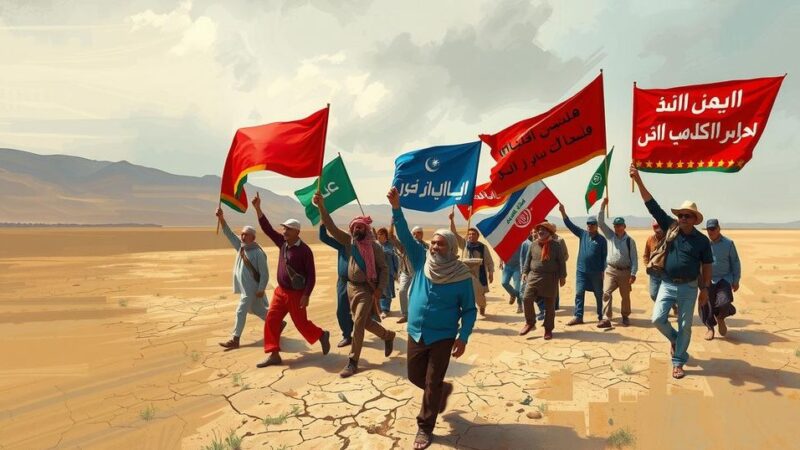The escalating tensions between the Trump administration and South Africa were marked by the expulsion of envoy Ebrahim Rasool after he criticized Trump’s policies. The administration’s animosity extends to South Africa’s governmental stance, especially regarding Israel. Trump’s remarks and actions have been interpreted as appealing to nativist supporters in the U.S., while South Africa grapples with the backlash and a rallying effect among its populace against U.S. criticisms.
Recent diplomatic tensions between the Trump administration and South Africa stem from a confrontation between Secretary of State Marco Rubio and South African envoy Ebrahim Rasool. Rubio declared Rasool “persona non grata” after the ambassador’s speech accusing the Trump administration of promoting a “supremacist insurgency” and exploiting a false sense of “White victimhood.” South Africa’s President Cyril Ramaphosa expressed regret over the expulsion and urged an adherence to diplomatic decorum.
Rasool’s provocative statements emerged following weeks of being sidelined in diplomatic settings in Washington. His challenges were compounded by his background as a Muslim and pro-Palestine advocate, which may have influenced his reception in current U.S. political climates. Reports indicate he had not secured any significant meetings with key officials since Trump’s inauguration, suggesting a systemic bias against him due to his identity and political views.
The antagonism directed at Rasool is reflective of broader grievances held by the Trump administration towards the South African government, particularly concerning its stance on the Israel-Palestine conflict. South Africa’s leadership role at the International Court of Justice in investigating Israel for alleged genocide has incited discontent, with Rubio labeling such positions as “anti-American.”
Furthermore, online discussions among Trump supporters often revolve around white nationalistic fears, particularly focusing on the alleged dangers faced by White farmers in South Africa. Prominent figures, such as Elon Musk, have similarly echoed claims of “White genocide,” despite official denials from South African authorities about heightened vulnerability among White populations.
Recent remarks from Trump, including an executive order against a land expropriation legislation aimed at addressing racial inequalities, reflect his administration’s hardening stance against South Africa. The U.S. has rescinded aid programs, and Trump has suggested resettlement options for White South Africans facing racial discrimination, despite studies showing that the demographic faces no higher crime risks than other groups.
Critics argue that Trump is leveraging these tensions to appease nativist sentiments among his base, further emphasizing fears of a declining status for White individuals in America. Such rhetoric resonates particularly among conservative and evangelical groups. South African commentator Max du Preez noted, “It plays into the fears of White people in America and elsewhere: ‘We Whites are threatened.’”
The deterioration of U.S.-South African relations has also galvanized opposition to Trump within South Africa, shifting opinions against his administration even among traditionally pro-Western constituencies. Many South Africans, including Afrikaners, display an inclination to remain in their homeland despite the potential for a more favorable environment in the U.S.
Scholars and analysts, including Sarang Shidore, have highlighted that the current rift is not solely a product of Trump’s presidency, pointing to longstanding issues regarding South Africa’s international neutrality, particularly regarding conflicts involving U.S. adversaries like Russia and China. Trump’s approach, however, has added a racial dimension to these existing tensions, complicating the diplomatic landscape.
The ongoing diplomatic conflict between the Trump administration and South Africa is rooted in complex political dynamics, characterized by deep-seated ideological differences. The expulsion of envoy Ebrahim Rasool highlights not only personal animosities but also broader grievances surrounding South African policies on race and international diplomacy. This confrontation reflects a significant shift in U.S.-South African relations, as Trump’s actions appear to cater to domestic nativist sentiments while deteriorating long-established diplomatic ties. As sentiments in South Africa coalesce against the Trump administration, the implications for both nations remain substantial and are likely to shape future engagements.
Original Source: www.detroitnews.com






